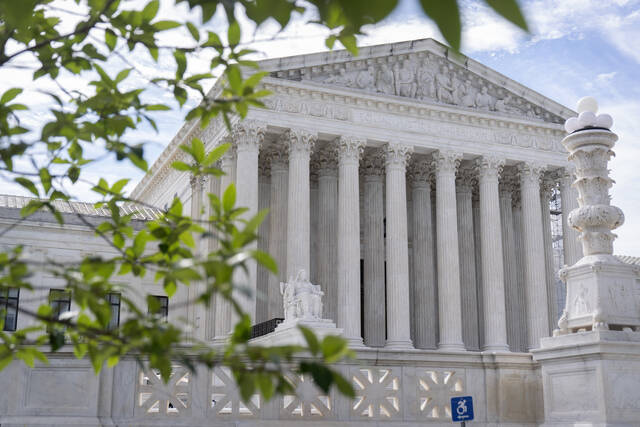https://naviga.triblive.com/opinion/bruce-a-antkowiak-federalism-and-separation-of-powers-a-double-security/
Bruce A. Antkowiak: Federalism and separation of powers — a double security?

Two cases, both involving former President Trump, have captured headlines recently and, like everything else connected with the upcoming presidential election, stirred virulent emotions on all sides.
In one case, the Supreme Court afforded the Office of the President immunity from prosecution in certain circumstances and, in the second case, a federal judge in Florida dismissed a prosecution because the special prosecutor there was not properly appointed to that office and was thus without authority to have acted.
Putting aside the political fodder to which these cases have been put, there is an underlying issue they raise which should be of interest to anyone who wonders what exactly it is that is supposed to protect those things we call fundamental rights from intrusion, particularly by the federal government. That really is an important question and one which we can at least thank these cases for asking.
The question revolves around the doctrine of separation of powers. In the immunity case, the Supreme Court held that separation of powers demands that the president be both “vigorous” and “energetic,” acting within the constitutional authority bestowed on that office without constantly looking over the shoulder for fear that their actions would subject them to civil or criminal sanctions. In the appointment case, the court held that executive officers must either be subject to presidential appointment with advice and consent of the Senate or, if they are inferior officers, to be appointed by the president, the courts or the heads of departments only when Congress has specifically authorized that action. While both decisions are attempts to interpret Article II of the Constitution, they are really attempts to give substance to the separation of powers doctrine.
We all love our fundamental rights, even though we may argue about what they are. Most certainly those people we call the Framers loved them with an equal or greater intensity when they gathered to write the Constitution. So what did they do to protect those rights within that document?
While most of us might think that it was the Bill of Rights that performed that important piece of constitutional magic, a bit of history will show how wrong that is. The group of brave souls who met in a sweltering Philadelphia in the summer of 1787 produced a document that did not say anything specifically about freedom of speech or religion or any of the other things we would think are fundamental rights.
No, they did not forget about them. And no, their lease on the hall did not expire requiring that they end their drafting work prematurely. While they cared deeply about fundamental rights, they earnestly believed that those rights could not be secured primarily by trying to write them down on a piece of paper but, rather, by constructing a government in a way that the rights would be protected by a unique political process founded on the twin pillars of federalism and separation of powers. James Madison confidently asserted that these pillars would constitute a “double security” for the rights of the people.
What then resulted was one of our first and greatest political compromises, a deal to approve the Constitution on the promise that one of the first acts of the newly formed Congress would be to propose amendments that would specify certain fundamental rights which the federal government could not infringe. Everyone kept up their end of that bargain, and the Bill of Rights was born in 1791.
Either or both of these cases may turn out to be judicial anomalies that get discarded in time. But if they have any important effect, they will perhaps encourage a discussion about a principle that is meant to help assure that whatever else we are, we may make a legitimate claim to be free.
Copyright ©2026— Trib Total Media, LLC (TribLIVE.com)
